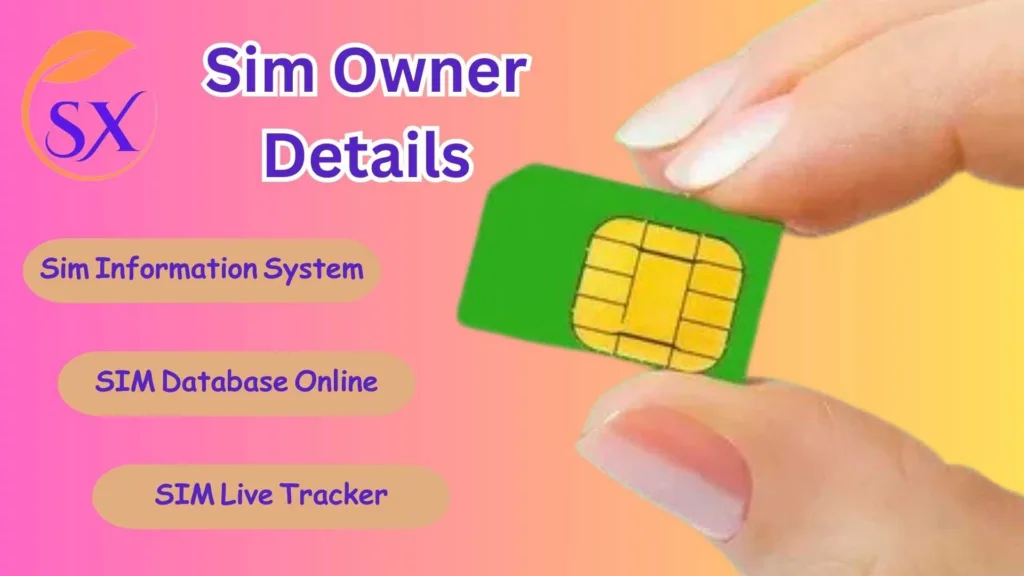How To Find Sim Owner Information for free?
Introduction to SIM Ownership Tracking
In today’s digital age, mobile phones have become indispensable. They not only serve as a means of communication but also as tools for banking, social networking, and more. Each mobile phone relies on a Subscriber Identity Module (SIM) card to operate within a network. Understanding who owns a particular SIM card can be crucial for various reasons, such as security, legal investigations, or personal safety. This guide delves into the intricacies of SIM ownership tracking, its importance, the technology behind it, and the legal aspects involved.

Importance of Knowing SIM Ownership
Security and Fraud Prevention
Knowing the ownership of a SIM card can help in preventing fraud and unauthorized use. It ensures that the person using the SIM card is the rightful owner, which can prevent identity theft and other fraudulent activities.
Legal Investigations
Law enforcement agencies often need to track SIM ownership to solve crimes. Whether it’s tracing the source of a threatening call or identifying suspects in a criminal investigation, knowing who owns a SIM card can be pivotal.
Personal Safety
For individuals, being able to track SIM ownership can enhance personal safety. Parents may want to ensure that their children are safe by knowing who is contacting them. Similarly, individuals may want to identify unknown callers for their safety.
How SIM Ownership Tracking Works
SIM Card Basics
A SIM card stores information needed to identify and authenticate subscribers on a mobile network. This includes the International Mobile Subscriber Identity (IMSI) and a unique authentication key.
Tracking Process
The process of tracking SIM ownership typically involves accessing a database that contains information about SIM card registrations. This database is maintained by mobile network operators and contains details such as the SIM card number, the registered owner’s details, and their national identification number.
Tools and Technologies Used
CNIC Tracker
In countries like Pakistan, the Computerized National Identity Card (CNIC) tracker is used to link SIM cards to their owners. This system allows for real-time tracking and verification of SIM ownership based on the national ID.
Mobile Number Tracker
Mobile number trackers are tools that can identify the owner of a mobile number. These tools use databases that contain information about registered phone numbers and their owners.
SIM Databases
SIM databases are comprehensive collections of data about SIM card registrations. These databases are crucial for tracking SIM ownership and are typically maintained by telecommunication companies.
Steps to Track SIM Ownership
- Obtain Necessary Information: To track SIM ownership, you need the SIM card number or the mobile phone number.
- Access the Database: Use authorized tools to access the SIM database or the CNIC tracker.
- Verify Identity: Ensure that you have the legal right to access this information. Unauthorized access can be illegal.
- Retrieve Information: Once authorized, retrieve the information from the database, including the owner’s details and registration information.
- Analyze the Data: Use the retrieved data for your intended purpose, whether it’s for personal safety, legal investigation, or fraud prevention.
Legal Aspects and Privacy Concerns
Legal Requirements
Different countries have varying legal requirements for SIM card registration. Typically, SIM cards must be registered with the user’s personal details and a national ID number. This registration is mandatory to ensure that SIM ownership can be tracked.
Privacy Concerns
While tracking SIM ownership is crucial for security, it also raises privacy concerns. Unauthorized access to SIM ownership information can lead to privacy violations. It’s important to ensure that tracking is done legally and ethically.
Case Studies and Real-World Applications
Law Enforcement
Law enforcement agencies have successfully used SIM ownership tracking to solve crimes. For instance, tracking the SIM card of a suspect can help in identifying their location and movements.
Fraud Prevention
Banks and financial institutions use SIM ownership tracking to prevent fraud. By ensuring that the person making a transaction is the registered owner of the SIM card, they can prevent unauthorized transactions.
Personal Use
Individuals have used SIM ownership tracking for personal safety. For example, parents can track who is contacting their children to ensure their safety.
Common Challenges and Solutions
Database Accuracy
One of the main challenges in SIM ownership tracking is ensuring the accuracy of the database. Inaccurate information can lead to false identifications.
Solution: Regularly update and verify the database to ensure accuracy.
Unauthorized Access
Unauthorized access to SIM ownership information can lead to privacy violations.
Solution: Implement strict access controls and legal requirements for accessing the database.
Future Trends in SIM Tracking
Advanced Tracking Technologies
The future of SIM tracking lies in advanced technologies such as AI and machine learning. These technologies can enhance the accuracy and efficiency of tracking.
Global Databases
There is a growing trend towards creating global databases that can track SIM ownership across different countries. This can enhance international security and prevent cross-border crimes.
Conclusion and Best Practices
SIM ownership tracking is a crucial aspect of modern telecommunication security. Whether it’s for preventing fraud, solving crimes, or ensuring personal safety, knowing who owns a SIM card is important. However, it’s equally important to ensure that tracking is done legally and ethically to protect privacy. By using advanced technologies and maintaining accurate databases, we can enhance the effectiveness of SIM ownership tracking while safeguarding privacy.
Best Practices:
- Legal Compliance: Always ensure that SIM ownership tracking complies with local laws and regulations.
- Accuracy: Regularly update and verify databases to ensure accuracy.
- Privacy Protection: Implement strict access controls to protect privacy.
- Use Advanced Technologies: Leverage AI and machine learning for more effective tracking.
- International Cooperation: Work towards creating global databases for enhanced security.
By following these best practices, we can make SIM ownership tracking a powerful tool for security and safety while respecting individual privacy rights.
